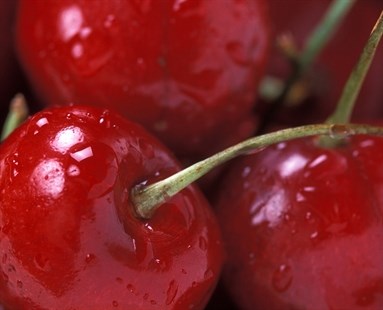
Image Credit: File photo
July 05, 2015 - 10:31 AM
KAMLOOPS – For those who grow and harvest their own food – whether for the love of the earth or simply for produce – you are well supported in Kamloops.
Sandra Frangiadakis and Elmarie Roberts share the same passion. Frangiadakis is the program coordinator of the Gleaning Abundance Project and Roberts, of Haliburton Farm in Saanich, spoke to Kamloops residents recently about the benefits of incubator farming.
Gleaning is an ancient practice dating back to biblical times. It is the act of harvesting surplus fruit from trees and produce, ensuring everything is used wisely.
The project collects from fruit trees in Kamloops, saving cherries and apricots that would otherwise fall to the ground to rot, to instead be donated to food banks, community kitchens or even sold.
“We want people to appreciate the fruit, to see it as a resource or a thing of value not a pain in the neck,” she says.
Haliburton Farm is a small-scale incubator farm in Saanich, parcelled into small sections, meant to teach sustainable organic agriculture. Formerly a teacher, Roberts changed her entire life twelve years ago to be a farmer.
“It’s passion about food security, it’s passion about being in touch with the land and it’s the joy and the awe and the wonder of growing food,” she says.
Haliburton farm’s mission is permaculture: To develop farming techniques that are sustainable and suit the conditions of the land. Both programs have become increasingly popular — Haliburton Farm has even had to turn potential farmers away.
Frangiadakis believes people want to learn how to grow and harvest their own food because “they are starting to recognize that the industrial food system is making us sick as well as doing immense social and environmental harm.”
Roberts believes a heightened level of consciousness and understanding of the environment is responsible for their success. Running an organic farm is more work but to grow sustainable food, she says “it’s a good price to pay.”
Frangiadakis loves the social component of gleaning with others, something that makes all the hard work worth it.
“Last year when I sent out a request for feedback to our volunteers, everybody talked about the people,” she says.
While making new friends is one component, Frangiadakis says it’s just an enjoyable way to spend time.
“Gleaning is free, and it’s so much fun.”
For Roberts, “it started with passion and when people do this it’s infectious.” She says community farms in Canada are concentrated on Vancouver Island, believing that one farm followed the next out of sheer interest or fascination with the project.
Over 40 people in Kamloops came to hear Roberts speak about incubator farms. It all started with one farm on the island and then the ‘infectious’ practice spread.
Roberts says, “I think the same thing will happen in Kamloops.”
To contact a reporter for this story, email Dana Reynolds at dreynolds@infonews.ca or call 250-819-6089. To contact an editor, email mjones@infonews.ca or call 250-718-2724.
News from © iNFOnews, 2015